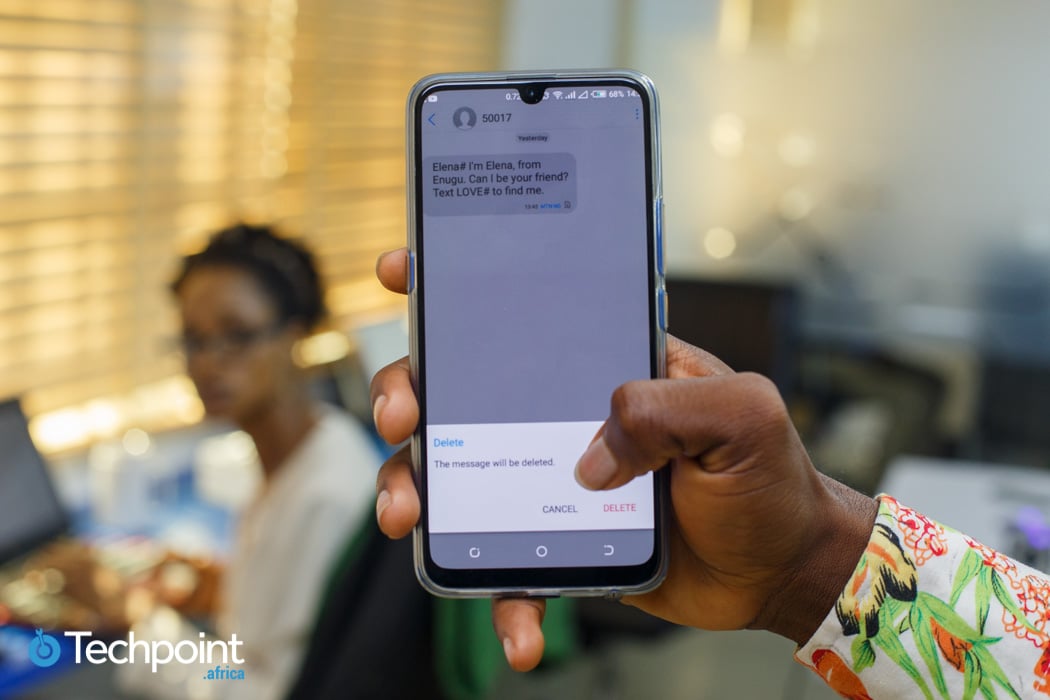Imagine your phone beeps, you rush to it thinking you have a credit alert, only to meet a congratulatory message for a service you never subscribed to. Such was the story of many mobile phone users just a few years back. For some today, this is still the case.
In July 2016, the Nigerian Communications Commission (NCC) introduced the Do Not Disturb (DND) shortcode to halt the spate of unwanted messages and subscriptions for Value Added Services (VAS).
A ₦5 million fine was to be imposed on any telco that violated the DND rule. A case in point was the recent fine by the NCC on Airtel and 9mobile earlier in August.
The NCC gave the new directive with the aim of removing industry players who abused the service to the frustration of several mobile phone users.
The introduction of the double-opt-in and the cancellation of auto-renewal seemingly brought a grinding halt to a large number of VAS services in existence. But in what appeared to be like throwing the proverbial tares alongside the wheat into a fire, everyone, both small and great, immediately felt the heat as mobile users started activating the DND code.
More than just the bad eggs
In a recent report, director of technical standards and network integrity at the NCC, Bako Wakil, lamented that in two years, the revenue generated by the industry had fallen from over ₦300 billion to about ₦79 billion in 2019, and is still declining.
Olufunso Adedeji, an independent VAS consultant, affirmed that though NCC’s directive succeeded in removing a lot of bad eggs in the industry, to a very large extent, it affected revenues and subscription volumes across all levels.
Reinforcing this, Badmus Ayodeji, VAS manager at The Temple Management Company, points out that the effect of the DND was far-reaching. Not just to up-and-coming players trying to make a living through value-added services, but even to established companies.
“Immediately the regulation came, VAS revenues started dropping across all networks, MTN, Glo, Airtel, and 9mobile before it affected virtually everyone else in the industry,” says Badmus.
Apart from the VAS companies, others who relied on text messages to market their services and gain subscriptions were seriously affected.
A music subscription platform, MyMusic.com.ng, founded by three Babcock alumni was one that made use of the SMS platform for marketing, and subscribers airtime for revenue generation.

With so many things battling for attention, renewing a music subscription via SMS on a monthly basis would probably not be anyone’s priority. The introduction of the DND, double opt-in, and even worse, the cancellation of auto-renewal all but put a halt to services in using this medium.
Suggested Read: The NCC’s Do Not Disturb code is disturbing businesses on a grand scale
From our chat with Gbolade Emmanuel, CEO of Termii, a communication platform as a Service (CPaaS), we discovered that with the dawn of the DND, corporations now need to pay more to send a one-time-password (OTP) or any other essential service to customers who have activated the DND.
Also, as emphasised earlier by Techpoint, users who activate the DND risk missing messages from any of their affiliated organisations like cooperatives or churches, job interviews, and important events who use bulk SMS to communicate information.
A new framework
In 2018, the NCC released a new framework for the VAS market that saw the introduction of aggregators who would serve as middlemen between the telcos and VAS companies.
With this new structure in place, VAS providers would no longer need to set up separate connections with the different telcos, all they would need to do is plug into one aggregator who will then connect to telecommunications service providers.
Olufunso claims this initiative was important, as it led to a restructuring of the revenue sharing process between the telcos — that possessed higher leverage — and the VAS companies.
“Before the initiative, the telcos could share revenues however it pleased them. One of the mobile networks was offering a division of 88%-12%,” says Olufunso
In line with the new structure, telecom operators were no longer allowed to offer VAS services of their own, and for ring-back tunes, they had to partner with 3rd party providers. The only shortcodes allowed were those essential to their services like customer care numbers.
The aggregators introduced were mostly companies like Internet Service Providers (ISPs) with existing fibre connections or satellites.
These aggregators, according to Olufunso, could provide another means for marketing through their fibre or wireless networks.
The bypass

As explained in an earlier post, SMS comes through two channels, the cheaper Promotional route used by Bulk SMS and VAS providers and the more expensive transactional route used by banks. The DND would reportedly only stop messages from the promotional route.
Suggested Read: Understanding DND: The pains and gains of stopping unsolicited text messages
By December 2017, an estimated 10 million subscribers were said to have it fully activated, but promotional messages did not stop.
While Termii’s CEO held that only standard corporations were allowed to send numbers to DND lines in order to facilitate necessary services like the OTP, Techpoint discovered a couple of bulk SMS websites that allowed individual marketers to bypass the DND and send messages to mobile subscribers.
In discussions with their customer representatives, we found out that the messages were sent using hosted SIM cards on their servers and routers. Consequently, messages to DND activated lines were predictably more expensive than those sent to regular numbers.
The process is however kept as legitimate as possible with some demanding KYC registration and the consent of the intended message recipients. Nevertheless, from the numbers submitted to them by the marketers, it is not clear how they would verify who gave their consent and who did not.
Olufunso explains that the Session Initiation Protocol (SIP) used to launch SMS and voice calls has not changed and messages can still be sent normally. It is now the duty of the telcos to make sure random advertising does not get to DND activated lines.
Also backing Olufunso’s explanation is the NCC’s VAS framework which mandates telcos to block any form of adverts coming to any DND activated line.
The activities of these websites may push the limits of NCC’s regulation, but others do not actively try to bypass the DND with Hosted SIMs.
Innovate or become irrelevant
While the telcos, VAS companies, and regular marketers were thrown into the proverbial fire of NCC’s regulation, the outcome was not the same for all parties.
Based on our findings, some huffed and puffed under the exertion of NCC’s regulation, but several of them had to creatively innovate in order to stay afloat.
Badmus opined that the negative effects of the arrival of the DND did not show any respect to size, but only to those who were able to innovate with the kind of services they offer and how they offer it.
Suggested Read: “Tech companies should not wait for regulations to surmount challenges” – Jubril Adeojo, co-Founder, SMEFUNDS Capital Limited
“As it stands, a lot of companies are veering away from the regular business-to-customer (B2C) model to business-to-business (B2B) model in order to tap into the power of popular and trusted brands,” Badmus says
Also in agreement was Olufunso who believed that the purge of the DND was a necessary precursor to innovation and creative ideas for marketing and revenue generation.
Olufunso also suggested that even without the regulation, the increasing prominence of over the top services like WhatsApp and Facebook would have still reduced the revenues that could have been generated through regular SMS.
“Right now, we have to look at other ways we can reach people apart from SMS. Calls are one of them, but we are also working on developing mobile applications which we can use to dispense these services.”
According to Emmanuel, with the presence of new technologies in the sector, marketing had gone beyond what it used to be.
Emmanuel insists that messages are now being tailor-made for a specific customer in order to do away with seemingly random texts to random users.
The company uses a number of methods to disseminate information but Emmanuel insists that the most productive of these are emails and SMS.
Despite recent complaints by interested parties, it is abundantly clear that VAS providers will only lose steam the moment they stop being creative and providing innovative solutions.











